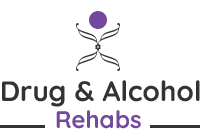Dialectical Behavioral Therapy
WRITTEN BY SONIA BLUMBERG – JANUARY 3rd, 2021
Dialectical Behavioral Therapy is one of the most successful behavioral therapy types proven to help even the most chronic addicts or alcoholics recover from their disease. Dialectical Behavioral Therapy was initially developed to help a person with personality disorders become healthy and was found to be extremely useful for a person who struggles with a substance use disorder, also referred to as an addiction, to attain recovery.
The National Center for Biotechnology Information advances in science and health from the National Institutes of Health (NIH) outline Dialectical Behavioral Therapy functions for substance use disorder treatment.

Search For A Rehab Center Near You
What is Dialectical-Behavioral Therapy?
Developed by Dr. Marsha M. Linehan, dialectical behavior therapy (DBT) is a comprehensive treatment program whose ultimate goal is to aid patients on how to envision, articulate, pursue, and sustain goals that are independent of his or her history of out-of-control behavior, including substance abuse… DBT’s emphasis [for emotional well-being] is a broader therapeutic goal than a reduction in problem behaviors, symptom management, or palliative care. The treatment includes five essential functions:
The Benefits of Dialectical-Behavioral Therapy Include:
- Improves patient motivation to change
- Enhances patient capabilities
- Generalizes new behaviors
- Structures the environment
- Enhances therapist capacity
- Enhances patient motivation
How Dialectical Behavioral Therapy is Provided in a Treatment Center?
Once a person realizes that they need help to overcome their drug and or alcohol addiction, it is necessary to locate a treatment center that offers a combination of treatment methods that includes behavioral therapies such as Dialectical Behavioral Therapy. A quality substance abuse treatment center must also design a custom treatment plan tailored to meet the needs of the individual. Treatment plans that are personalized offer evidence-based behavioral therapy methods and other cross-disciplinary addiction treatment options.
Dialectical Behavioral Therapy is most often available at an inpatient or residential treatment programs. Therapy may also be provided at an outpatient or intensive outpatient program format. Both settings are effective for Dialectical Behavioral Therapy to help the patient. Yet, inpatient, or residential treatment programs where the individual is receiving around the clock support may provide more intensive therapy sessions allowing for even deeper healing than at an outpatient program. Dialectical Behavioral Therapy requires that the patient and therapist develop a close relationship. Residential rehab programs can support this priority more effectively.
Why is Dialectical Behavioral Therapy Successful?
DBT is successful because it encourages complete abstinence from drug and alcohol use as soon as the therapy begins. Once a person develops an addiction to drugs, alcohol, or both, there is no option (in most cases) for anything other than complete sobriety. This is often challenging for many people who have recently become clean and sober. Newly recovering addicts and alcoholics understand their lives are better sober. Still, it takes many months and years for them to desire to remain sober for good, or to accept that they must.
Dialectical Behavioral Therapy reduces the idea of long-term sobriety into smaller and less intimidating commitments. For example, a therapist might suggest to the patient to commit to staying sober for one hour or one day at a time. Once the hour was met, the day then longer goals of abstinence such as weeks or months, the patient feels it is easier to do than they thought when they perceive it as a lifelong battle. As a person continues to succeed, they gain stability and move closer to long-term abstinence.
Where Can I Find Dialectical Behavioral Therapy Near Me
Since drug addiction has increased dramatically in recent years due to the nationwide opioid crisis, government agencies and healthcare research have determined that unless an addict receives quality drug treatment, the likelihood of that person becoming drug-free is low. A quality drug and alcohol addiction treatment program will include behavioral therapies at most rehabs.
Dialectical Behavioral Therapy is available at the drug treatment centers listed on our website. Because DBT helps individuals attain lasting recovery and improves several mental health diagnoses, it is now a standard therapy. It is available at rehabs that provide dual diagnosis treatment. Dual diagnosis treatment is for people who have a substance use disorder and are diagnosed with either an emotional or mental health disorder such as depression, anxiety, bipolar, PTSD, etc.
All of the substance abuse programs that we endorse have years of experience providing evidence-based therapy forms, such as dialectical behavioral therapy, individual counseling, group counseling, and holistic therapy. Getting help for an addiction to drugs or alcohol or both is easier than it used to be. Ideally, to help a person struggling with a SUD, the first step will be to get them admitted into a medically supervised detox program connected to a substance-specific treatment program. Substance specific treatment programs are targeted to meet the needs of the individual’s addiction and the behaviors that their addiction causes.
